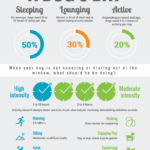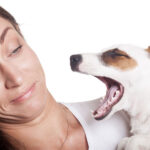Will A Dog Eat You If You Die
Will a Dog Eat You if You Die? The Surprising Truth About Canine Behavior and Human Corpses
Many people have heard the gruesome stories of dogs attacking and even eating their owners or other humans who have died. These tales often evoke fear, disgust, or curiosity, depending on one’s perspective and prior experience with dogs. But are these stories true? Can dogs really turn into cannibals when their beloved masters expire? Or are they just myths or rare exceptions that should not worry us too much?
The answers to these questions are not simple or straightforward, as they depend on various factors such as the breed, age, temperament, health, hunger, and training of the dog; the cause, time, and location of the human’s death; and the presence or absence of other animals or humans around. Moreover, some of the evidence and opinions about canine postmortem behavior are conflicting or ambiguous, making it hard to draw definitive conclusions. Nevertheless, by examining some of the available scientific studies, anecdotes, and expert advice on this topic, we can try to shed some light on what a dog is likely to do if its owner dies.
First of all, let’s address the most common assumption that dogs will always eat their dead owners out of hunger or instinctual scavenging behavior. While it is true that dogs (and many other animals) can resort to consuming carrion in order to survive when food is scarce or competition is high, there is no evidence that dogs will automatically resort to cannibalism when their owners die. In fact, most dogs will simply wait for their owners to return or seek help from other humans nearby if they sense something is wrong. This waiting behavior has been observed in many cases where owners have died suddenly at home or in remote areas while walking their dogs.
However, there are some cases where dogs have been found eating human corpses that were already decomposing or partly consumed by other animals. In these cases, the dogs may have been motivated by hunger or curiosity rather than loyalty or aggression towards their owners. Such cases are rare and usually involve neglected or abused dogs that roam freely and scavenge for food in unsanitary environments. Domesticated dogs that are well-fed, trained, and socialized with humans are less likely to behave in such a manner.
Another factor that can affect a dog’s postmortem behavior is its breed and size. Some breeds of dogs, such as pit bulls or Rottweilers, have a reputation for being aggressive or dangerous even towards humans, while others, such as Golden Retrievers or Labrador Retrievers, are known for their friendly and docile nature. However, this does not mean that all pit bulls or Rottweilers will attack or eat their dead owners, nor that all retrievers will be passive or indifferent to corpses. The temperament and training of each individual dog can vary widely within a breed, and should be assessed on a case-by-case basis.
Moreover, the size of the dog can also play a role in its ability to consume a human corpse. A small dog like a Chihuahua or a Pomeranian may have difficulty biting through skin and bones, while a large dog like a Great Dane or a Mastiff may have enough strength and jaw power to tear apart flesh and crush bones. However, even large dogs may not be able to fully consume an adult human body without assistance from other factors such as decomposition, scavengers, weather conditions, or time.
So what should you do if you are worried about your dog eating you if you die? The best way to prevent this scenario is to ensure that your dog is well-cared for and supervised by responsible adults who know how to handle it. This includes providing enough food and water for your dog, training it to obey basic commands such as “stay” or “come”, and socializing it with other dogs and humans. You should also make sure that your dog has access to a secure and comfortable place to stay when you are not around, such as a crate or a designated room with toys and bedding.
In addition, you can prepare for the worst-case scenario by leaving clear instructions for your family members or friends on how to take care of your dog if you die unexpectedly. This includes providing them with contact information for your veterinarian, emergency services, and animal shelters, as well as any special dietary or medical needs that your dog may have. You can also consider getting a pet trust or a will that specifies who will inherit your dog and how they will provide for its welfare.
In conclusion, while the idea of a dog eating its owner after death may sound horrifying or fascinating, it is not a common or inevitable outcome. Dogs are loyal and loving companions that rely on humans for their survival and well-being, and most of them will behave in a respectful and protective manner towards their owners even after death. However, as with any living being, there are exceptions and risks that should be mitigated through responsible ownership and preparation. So enjoy your time with your furry friend, but also plan ahead for any contingencies that may arise in the future. Who knows, maybe the joke about dogs eating homework will become obsolete someday!



